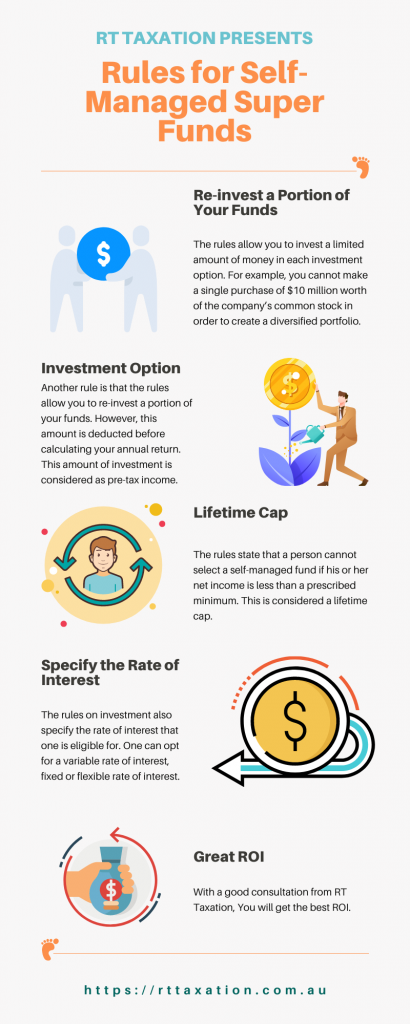Did you know that you can take ownership of your own superannuation, and start a Self-Managed Superannuation Fund (SMSF)? In a financial climate that shows uncertainty, it is enticing to take complete control over your financial future. In 2021 – the markets have been volatile and have reached new highs. Pair this with the feeling of ambiguity the large super funds leave you. And you are left questioning if you should be taking charge of your own finances by opening your own self-managed super fund. But before you start preparing all your paperwork and take the plunge into managing your own super, you need to understand if a self-managed super fund is the right solution for you and your business. An SMSF is not for everyone – but it comes with advantages. However, there are also risks associated. If you are not compliant with superannuation rules.
What is a self-managed super fund?
A self-managed superannuation fund is a super fund that you manage yourself. These self-managed super funds are different from the industry and retail super funds that you see in the workplace. When you are in control of your own self-managed super fund, you put the money that we would normally put into a retail or industry super fund into your own SMSF. You have total ownership of the investments and insurance.
A self-managed super fund is a fund with less than five members, and each of those members is a trustee of the fund or a director of the trustee company. These other four members (including that you are the fifth member) can be friends, family, or colleagues. As all members of the fund are trustees, all are responsible for the fund. And it is important to note that a super fund is a form of trust. And a trust deed is required for the fund to function. The trust deed and superannuation legislation determine all activities of the fund.
A self-managed super fund works like a retail super fund – where the superannuation benefits will be paid upon retirement. In addition, self-managed super funds receive the same concessional tax treatments whilst in the growth stage and payment phase. Due to the concessional tax treatment, there are strict rules and penalties to ensure that all funds adhere to receive retirement benefits. It is these rules and regulations that often deter individuals from starting their own self-managed super fund. The additional work and risk outweigh the ownership of the self-managed super fund. Nevertheless, there are individuals that are taking ownership of their super.
Benefits of Self-Managed Super Funds
In a recent SMSF quarterly statistical report it is stated that nearly 43 percent of new self-managed super funds were opened by individuals. Between the ages of 25 and 44. They are gaining more and more popularity through the younger to middle-aged workers. Because of the control members must make their own investment decisions. Also, given the opportunity to invest in funds that are not included in the mainstream retail super funds. Some of the main benefits of managing your own self-managed super fund include:
Investment freedom
Members can manage their own funds and control their investments. They have the liberty to a greater pool of investment choices – and can jump on investment opportunities.
This also allows members to act quickly on investment decisions. You have the freedom to adjust an asset allocation very quickly if market conditions change.
In addition, you can choose to invest in asset classes that you would not have the opportunity to invest in if you were with a retail super fund. As an example, you can buy physical gold or invest in art. These are all possible with a self-managed super fund.

Ability to purchase a residential property.
A very interesting benefit of self-managed super funds is the fact that you can buy an investment property through your self-managed super fund. And go on to earn income from the rental payments. You will also enjoy the capital gains against the value of the property. The property purchase is your responsibility. And you have control over what you choose to buy. And who you rent it to (provided it is not a direct family member). This benefit is only for those who have a self-managed super fund – and not a standard retail fund.
Fund tax position
Similarly, to industry superannuation funds, your self-managed super fund is taxed at a lower rate of only 15 percent. This is considerably lower than a marginal tax rate for work-related income which can be up to 45 percent.
You can gain a tax benefit by contributing to your self-managed super fund through concessional contributions. Your employer can pay the compulsory superannuation guarantee (9.5 percent p.a) into your self-managed super fund. This will then be taxed at the concessional rate of 15 percent as opposed to your full tax rate (according to your salary).
Family pool
When you start a self-managed super fund, you can have up to another four members join the fund. These members can be anyone you choose. As an idea, you can choose family members – pool together your collective super balance as a family. And invest more together and reduce the overall fees of a self-managed super fund (and retail industry super fund).
Is an SMSF right for me?
Even though self-managed super funds offer some enticing investment and tax benefits – they are not the right option for everyone. Before you consider opening your own self-managed super fund, be sure to know what is involved, what admin work is required to make it work, and the costs that are involved. And most importantly you must know the risks that come with opening a self-managed super fund.
Below are some points that outline if a self-managed super fund may be the right choice for you.
- Your super balance (or accumulated family super pool) is over AU$200,000. This is not mandatory, however, considering the costs involved in setting up a self-managed super fund, it is a good amount to consider.
- You understand investments, the share market, asset classes, finances, and tax. You will need to have the knowledge to buy and manage an investment property and how to invest in international markets, even during volatile climates.
- Managing an SMSF is time-consuming. You need to ensure that you have the capacity to invest your time (not just invest your money) into your self-managed super fund. If you are not capable of dedicating time, then your investments may suffer, and you may not be able to stay ahead of your reporting required by the Australian Taxation Office.
- Need to understand legal requirements. Everyone required to adhere to legal obligations such as setting up a trust deed. You may not have legal experience, but an understanding will help.
Starting your own self-managed super fund is a lot of work and comes with risk. If you are 100 percent committed and understand what is involved in opening your own fund, then consider professional advice. Have a chat with us at RT Accounting & Taxation Services about your self-managed super fund. We can help you start your super fund and steer you in the right direction – allowing you to feel confident in your investment decisions.


